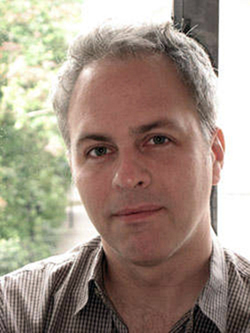Campus News
Arts Dean’s Lecture Series to explore climate justice, art, activism, and the environment
“Climate Justice Now!–Art Activism, Environment Today” is the title of the 2016 Arts Dean’s Lecture Series–an array of free public talks running March 30 to May 25 at UC Santa Cruz.


The series is presented as part of a course taught this spring quarter by history of art and visual culture professor T.J. Demos, who is also director of the new Center for Creative Ecologies.
“As climate change threats grow more severe, and in the absence of government leadership, artists and activists are inventing creative strategies of consciousness-raising, mass mobilization, and ecologically sustainable thinking and living,” Demos noted.
“This class, joined by a diverse array of guest speakers–all leaders in the area of climate justice and cultural politics–will explore current imperatives for making a just transition to a post-carbon future.”
Demos said that the goal of this year’s Arts Dean’s Lecture Series is to introduce both students, and the general public, to the present convergence of artists and activists now addressing climate change.
“Cultural practitioners are doing so in diverse and exciting ways, insisting on making visual culture and artistic creativity relevant to environmental studies,” Demos explained. “In this regard, they are fulfilling a long-standing avant-garde promise: to integrate art and life.”
“They are attempting to address new forms of living and thinking according to the imperatives of ecological sustainability and social, political and economic justice, and equally carrying forward crucial questions about what it means to be human, social, and political in this time of momentous environmental changes.”
Some skeptics might say the arts really can’t have a significant role in dealing with climate change–that it’s really the realm of scientists. But Demos has a different take. He believes that cross-disciplinary conversations are essential in a rapidly changing world in order to share knowledge and build intellectual resilience.
“There are many advantages to be gained from posing humanities and artistic-related questions to scientists, including the ethical implications of research, how it revises our shared conceptions of what it means to be human, and how we might relate responsibly to the web of life beyond ourselves,” said Demos.
“Developing our senses, learning to look with acute perception, and thinking creatively and critically–all falling within the domain of specialization within the arts–are not only necessary in dealing with climate change, they will be among the human capacities that will save us in a world of increasing precarity and instability.”
The series kicks off on Wednesday, March 30, with a talk by David Solnit titled “Using Arts Organizing to Fight for Climate Justice and More.”
For a complete schedule of speakers and their backgrounds, visit the Arts Division event web site.
The 2016 Arts Dean’s Lecture Series, Climate Justice Now!–Art Activism, Environment Today, takes place March 30 to May 25 at the Media Theater in the Theater Arts Center on the UC Santa Cruz campus. All lectures begin at 5 p.m. Admission is free and the public is invited. This event is sponsored by the UC Santa Cruz Arts Division and the Arts Dean’s Fund for Excellence. For more information, go to http://arts.ucsc.edu/lectures/dean-lecture-series-2016.